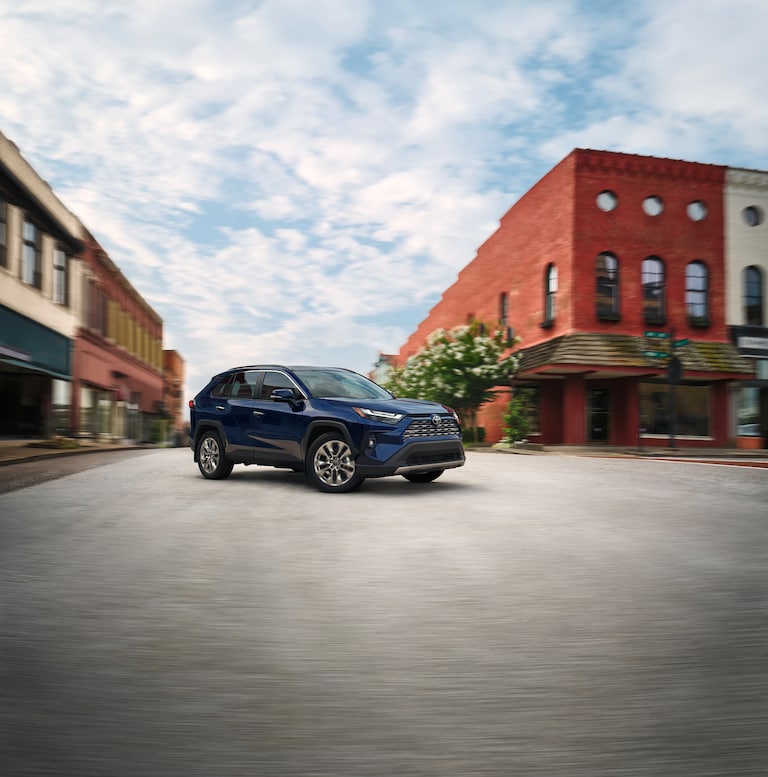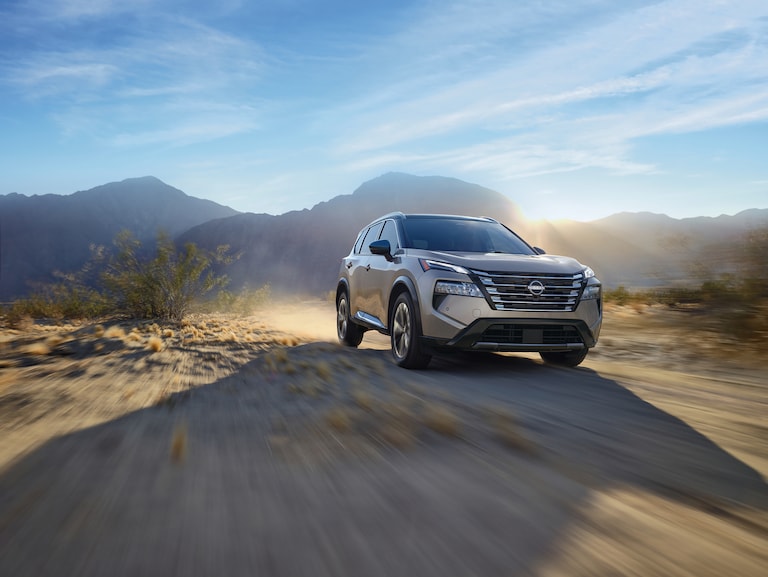Toyota RAV4 VS Nissan Rogue
Toyota Extols Beauty in a Refined Way
The RAV4 is a versatile SUV, boasting a careful balance between efficiency and comfort; however, Toyota's genius allows for this incredible creation to push the boundaries. Provided you're curious to learn how the Toyota RAV4 compares against the Nissan Rogue, look no further. Our team will detail the differences, helping you to make a well-informed decision.
Interior: Comfort Meets Practicality
Sliding into the RAV4 reveals Toyota's mastery of driver-focused ergonomics. The cockpit features intuitively placed controls and supportive seats with available ventilated leather surfaces. Soft-touch materials grace key contact points, creating an ambiance that balances durability with comfort. The Rogue counters with Nissan's "Zero Gravity" seats that initially impress but lack long-distance support. Both cabins feature modern digital displays, though the RAV4's 10.5-inch touchscreen integrates more cleanly into the dash design versus the Rogue's tablet-style mount. Storage solutions showcase thoughtful differences:
- The RAV4's dual-level center console accommodates both tablets and small items
- Rogue's larger glovebox but limited door pocket space
- RAV4's optional panoramic moonroof floods cabin with natural light

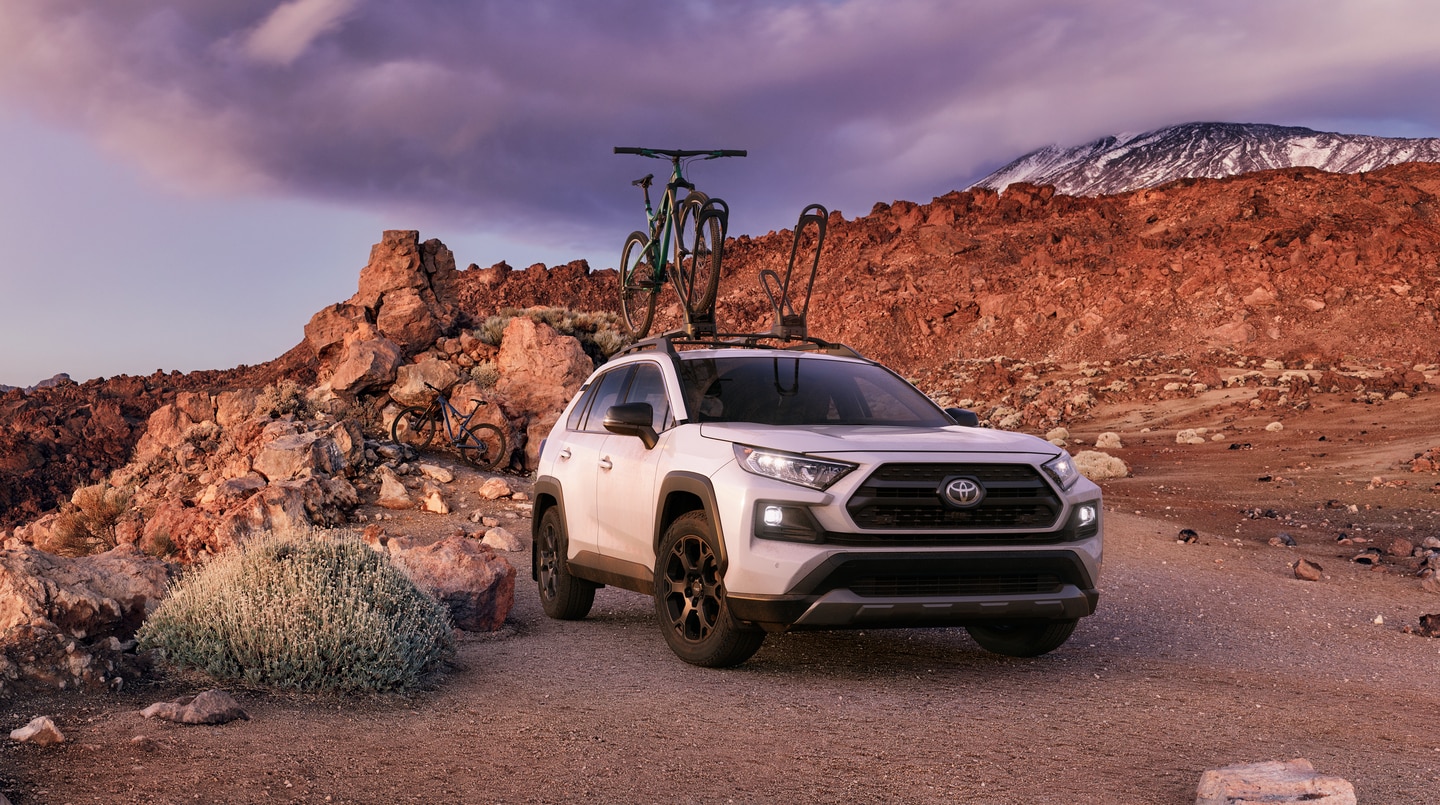
Exterior: Design Philosophy on Display
The RAV4 projects assertive confidence with its chiseled body lines and trapezoidal grille, creating a rugged yet sophisticated presence. LED lighting signatures wrap around the corners, giving it a distinctive nighttime identity. Nissan takes a more organic approach with flowing curves and a V-motion grille that appears more delicate. Color palettes reveal brand personalities:
- The RAV4's adventurous Lunar Rock and Cavalry Blue metallics
- The Rogue's conservative Deep Ocean Pearl and Scarlet Ember tones
Both offer two-tone roof options, but the RAV4's blacked-out pillars create a more cohesive floating roof effect compared to Rogue's abrupt transitions.
Top Specifications: Core Metrics
Essential comparison points between these contenders:
- Base Engine: RAV4 2.5L four-cyl (203-horsepower) vs Rogue 1.5L three-cylinder turbocharged (201-horsepower)
- Transmission: RAV4 eight-speed automatic vs Rogue continuously variable (CVT)
- Available Drivetrain: Both offer intelligent AWD systems
- Warranty: three-year/36,000-mile coverage on both
- Hybrid Option: Available on the RAV4, not offered on the Nissan Rogue
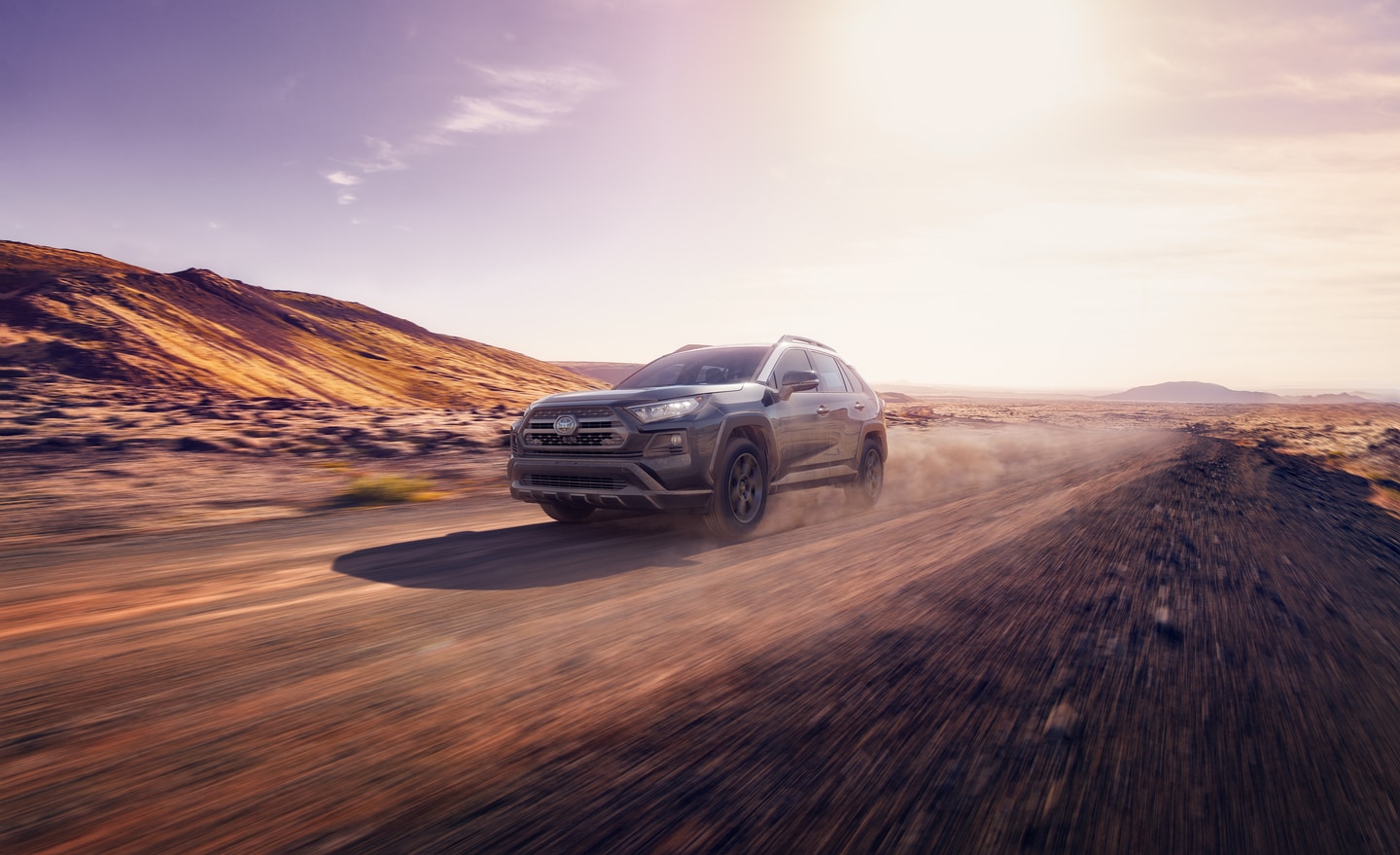
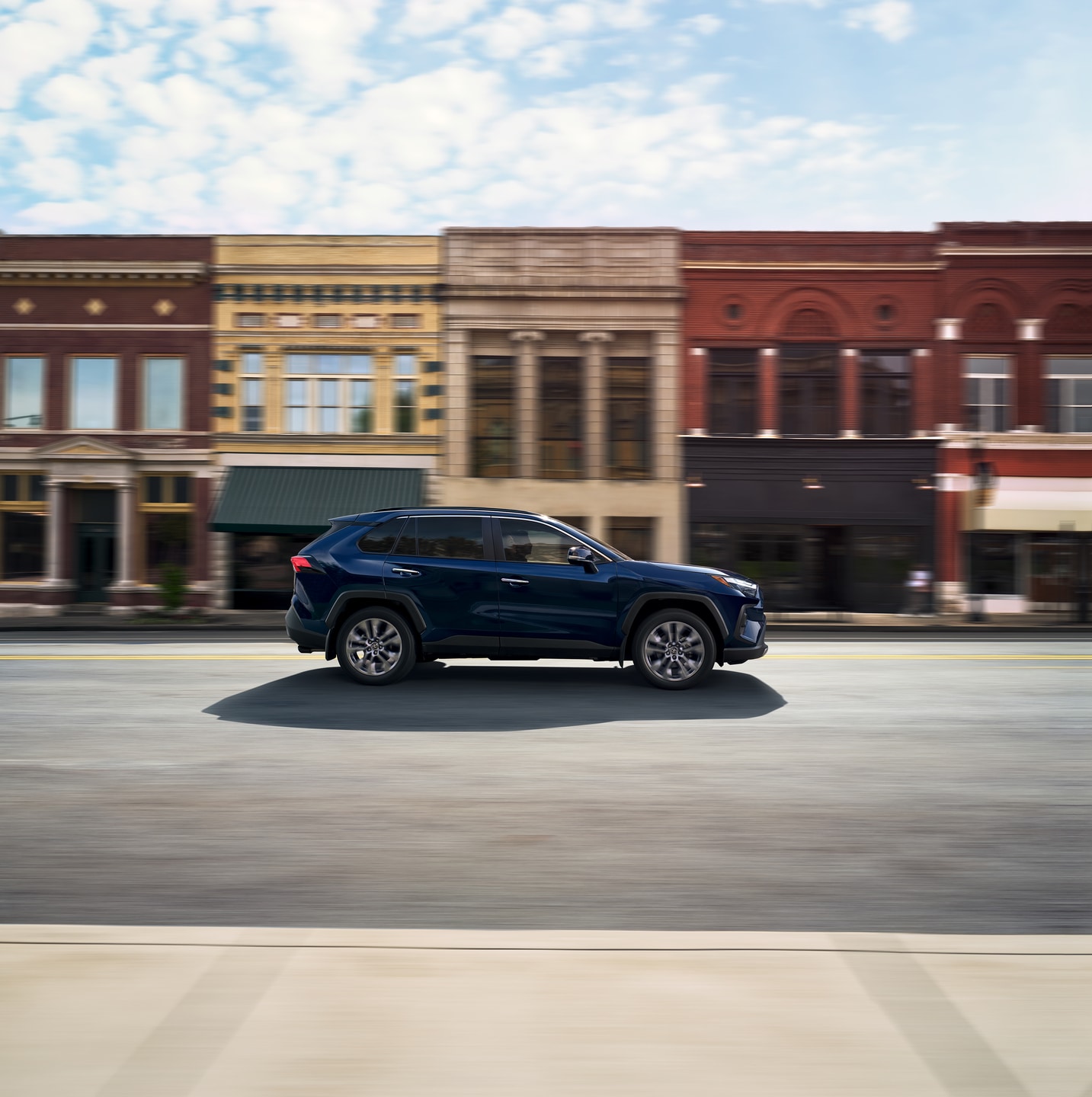
Performance: On-Road Behavior
The Toyota RAV4 delivers linear power progression through its conventional eight-speed transmission, providing predictable acceleration without hesitation. Road imperfections are absorbed with composure thanks to its sophisticated rear suspension design. The Rogue's turbocharged three-cylinder offers adequate power but suffers from rubber-band effect under hard acceleration - a common CVT trait. When cornering, the RAV4 maintains composure with minimal body roll, while the Rogue exhibits more pronounced lean. Both provide confident braking, though the RAV4's pedal offers better modulation feel during gradual stops.
MPG: Efficiency Realities
Fuel efficiency reveals interesting trade-offs:
- RAV4 conventional: 30 combined mpg (27 city/35 highway)
- Rogue conventional: 31 combined mpg (30 city/34 highway)
- RAV4 hybrid: 40 combined mpg (41 city/38 highway)
While the Rogue narrowly leads in conventional models, it requires premium fuel for maximum output. The RAV4 hybrid's exceptional efficiency operates on regular unleaded, delivering substantial long-term savings. Real-world testing shows both achieve close to EPA estimates, though the RAV4 hybrid maintains efficiency better in cold weather.

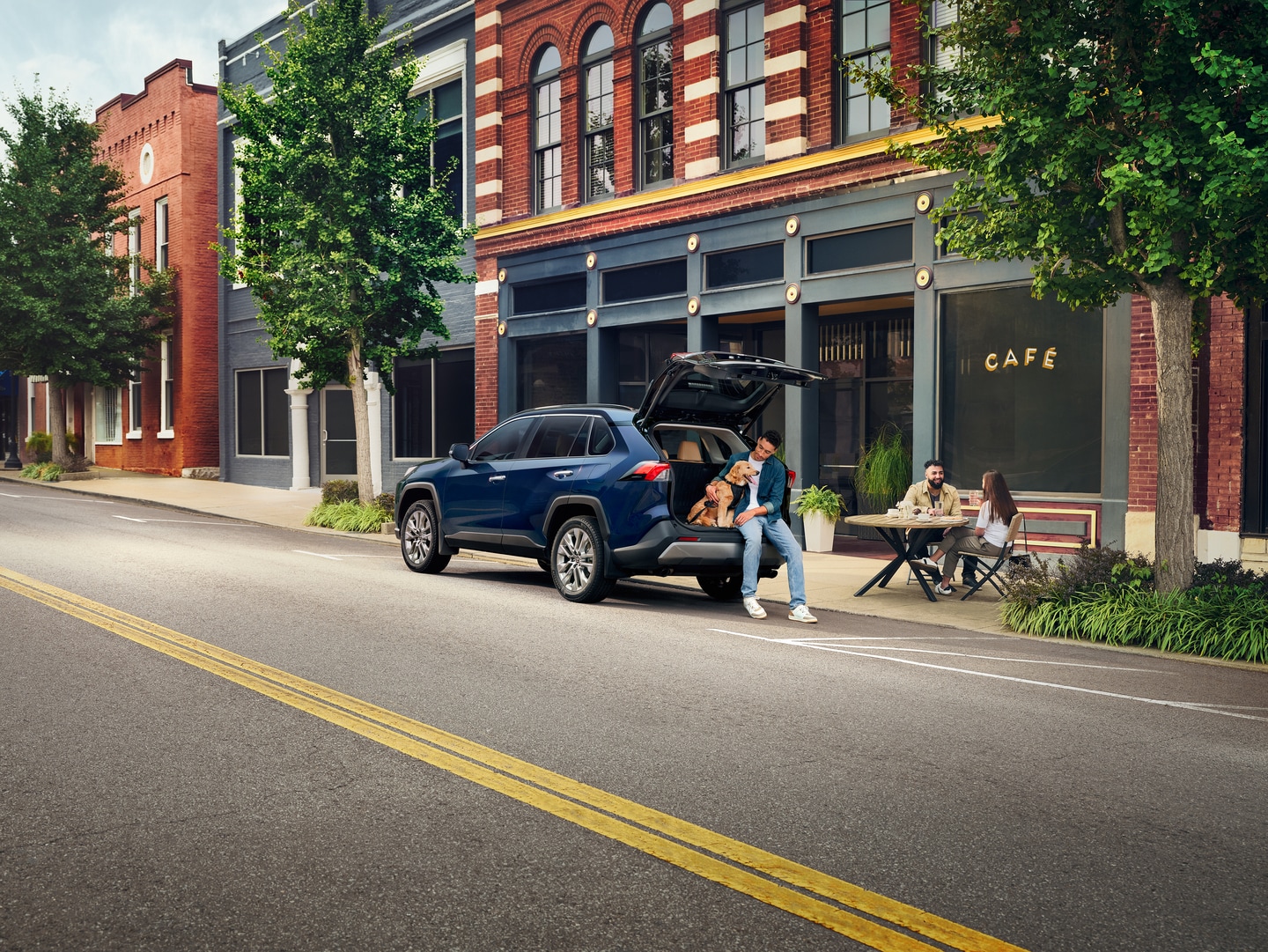
Size: Space Utilization
Exterior dimensions are remarkably similar, but interior execution differs:
- Passenger volume: Rogue 105.8 cubic feet vs RAV4 98.9 cubic feet
- Cargo space (behind rear seats): RAV4 37.6 cubic feet vs Rogue 31.5 cubic feet
- Rear legroom: RAV4 41.0 inches vs Rogue 38.5 inches
- Cargo length: RAV4 accommodates 76-inch items vs Rogue's 74-inch limit
The RAV4's lower load floor and wider tailgate opening simplify bulky item loading. Both offer fold-flat rear seats, but the RAV4's one-touch levers in the cargo area provide quicker configuration changes.
A Quick Overview Of Both Vehicles


| Features | 2025 Toyota RAV4 | 2025 Nissan Rogue |
|---|---|---|
| Engine displacement | 2.5 l | 1.5 l |
| Engine power | 203 hp @ 6,600 rpm | 201 hp @ 5,600 rpm |
| Engine torque | 184 lb-ft @ 5,000 rpm | 225 lb-ft @ 2,800 rpm |
| Engine configuration | Inline 4 | Inline 3 |
| Drivetrain | All wheel drive | All wheel drive |
| Transmission | 8-speed shiftable automatic | Continuously variable-speed automatic |
| Fuel Economy (City/Hwy) | 27 / 33 / 29 MPG | 28 / 35 / 31 MPG |
| Max Cargo Space | 69.8 cu. ft. | 74.1 cu. ft. |
| Towing Capacity | 1,500 lbs | 1,500 lbs |
Why Toyota Pulls Ahead
While the Rogue offers slightly more passenger volume and contemporary styling, the RAV4 counters with superior cargo flexibility, available hybrid efficiency, and more engaging driving dynamics. Toyota's execution demonstrates particular strength in practical details - from the intuitive infotainment to the well-considered storage solutions.
Learn More About the Toyota RAV4
Discover how the RAV4's thoughtful engineering translates to daily driving satisfaction. Visit Permian Toyota for a personalized demonstration and test drive.
How can we help?
* Indicates a required field
-
Permian Toyota
3500 N Grimes St
Hobbs, NM 88240
- Sales: 575-492-3700
